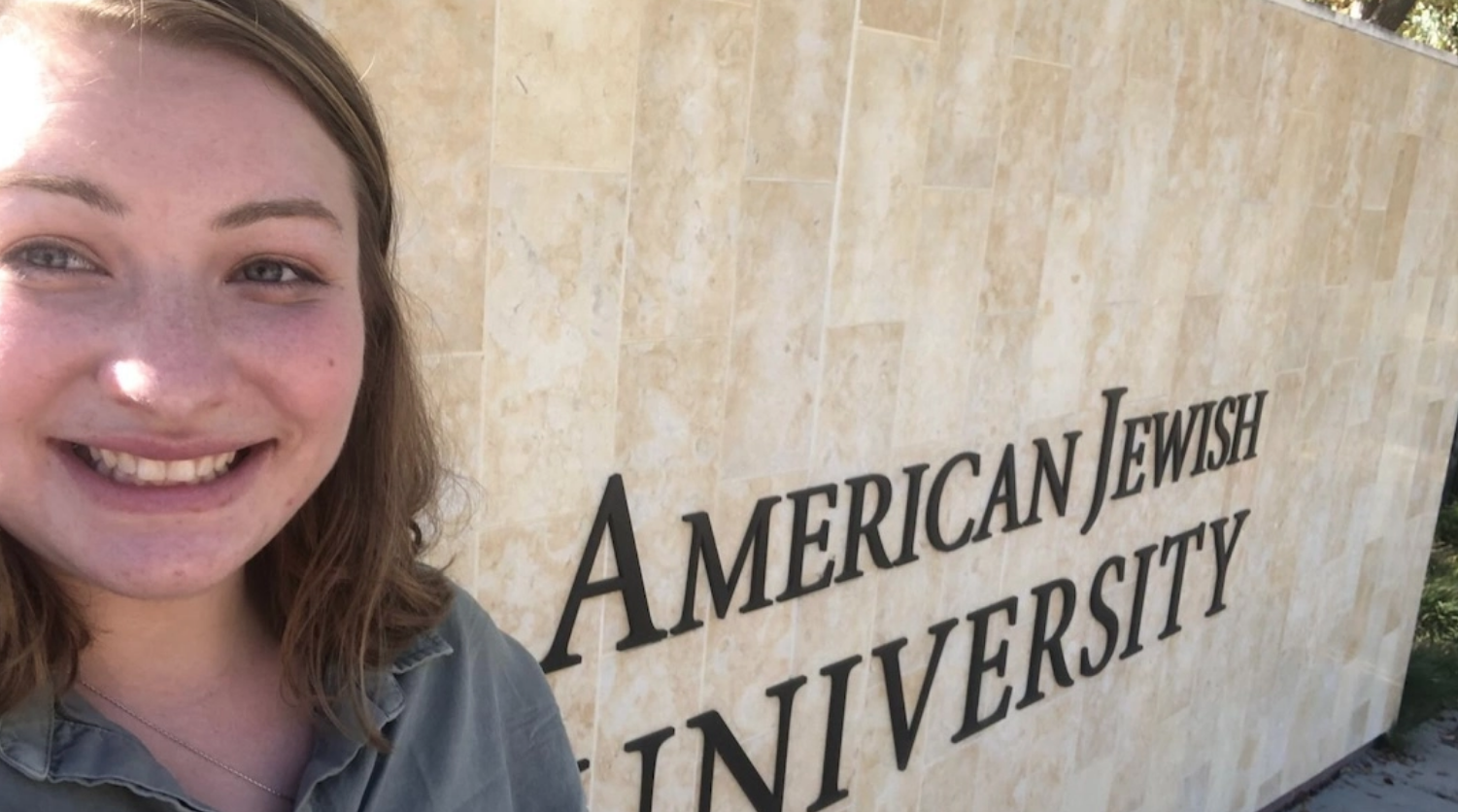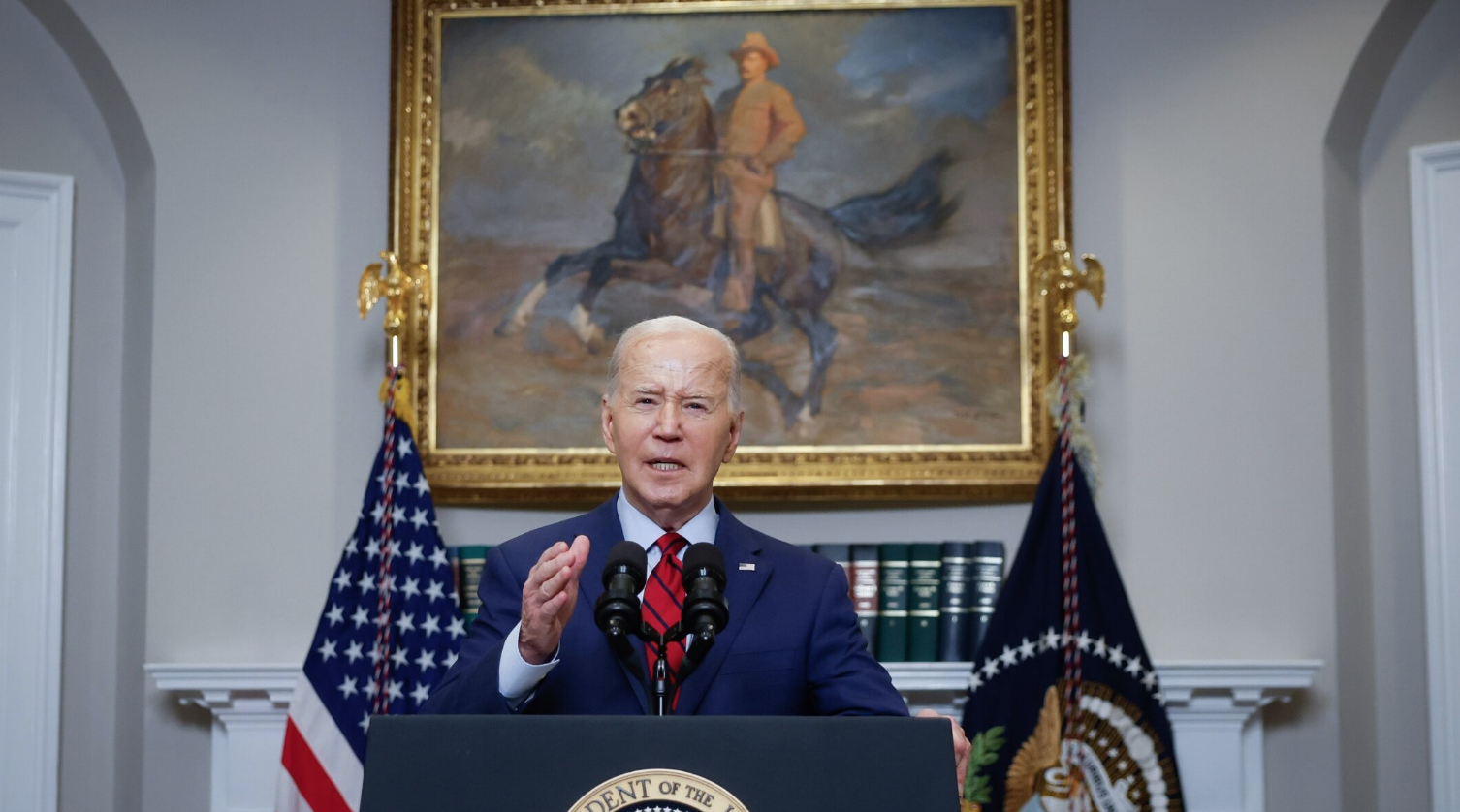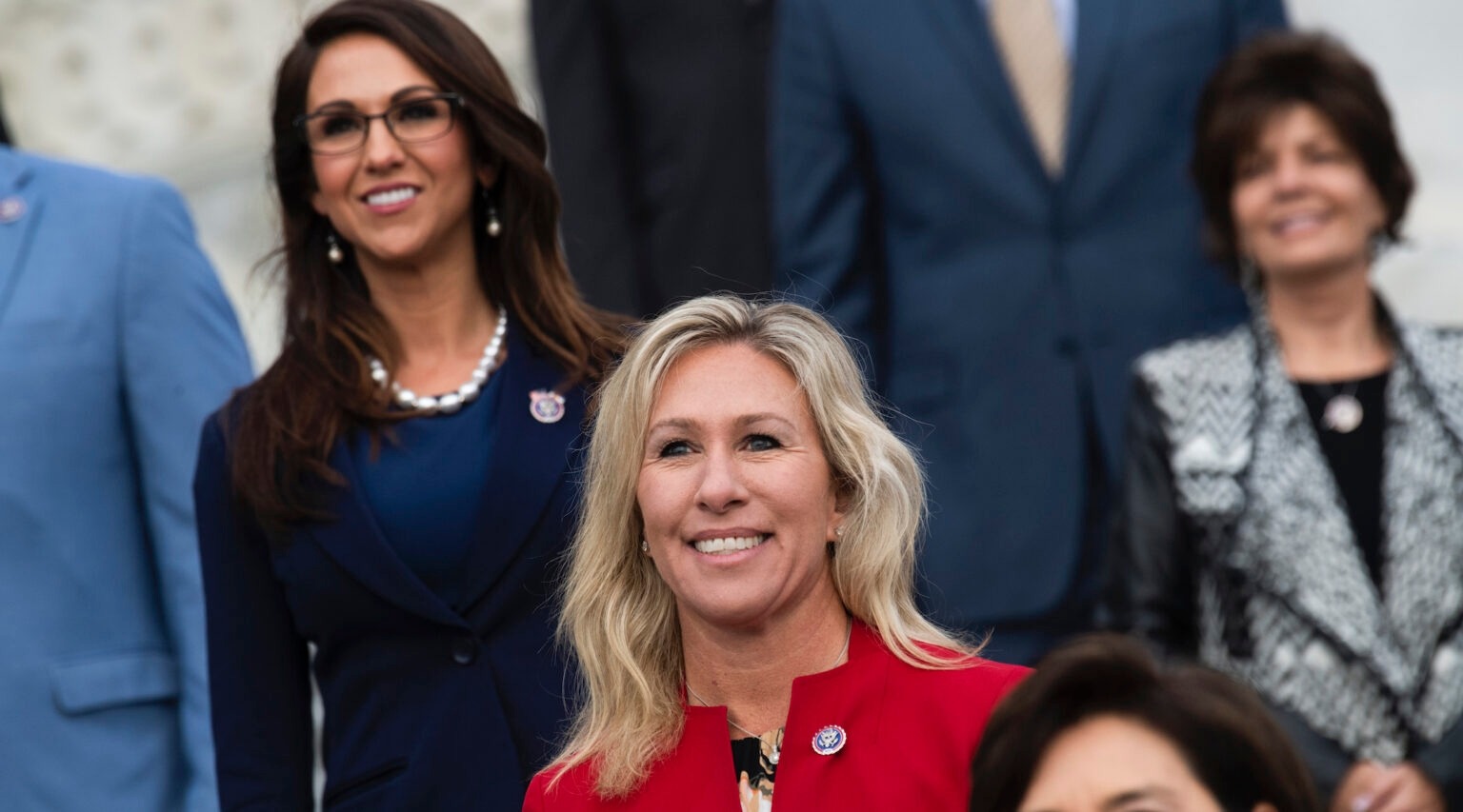(JTA) — American Jewish University last year hired a law firm specializing in investigations of gender-based misconduct following complaints against the two deans who have been running the university’s rabbinical school for more than two decades.
The university, which is affiliated with Conservative Judaism, confirmed that the law firm Cozen O’Connor’s Institutional Response Group is conducting an investigation.
A Cozen O’Connor attorney informed complainants on March 11 by email, which they shared with the Jewish Telegraphic Agency, that AJU plans to release a public report about the investigation in a matter of weeks.
Rabbi Bradley Shavit Artson, dean of the Ziegler School of Rabbinic Studies, and his deputy, Rabbi Cheryl Peretz, are also the subject of a monthslong probe by the ethics committee of the Rabbinical Assembly, an association of Conservative rabbis, over roughly the same set of allegations.
The investigations were launched after a group of former rabbinical students, who attended Ziegler at different times over the past 20 years, coalesced to address what they describe as a shared experience of male favoritism and disrespectful treatment by Artson and Peretz at the Los Angeles seminary.
In interviews and a formal complaint to the ethics committee, which JTA has reviewed, the former students allege that the two deans have presided over a sexist and homophobic campus culture rife with inappropriate jokes, and that the deans have mishandled at least one case of sexual harassment between students. The former students cite examples of individuals whose experience at the school led them to leave Ziegler for other rabbinical schools or abandon their dreams of becoming rabbis altogether.
“I want a future where women and people of all genders are able to study at Ziegler without a culture of misogyny,” said Shayna Dollinger, who left Ziegler last year after a little more than one semester and has since enrolled in Hebrew Union College. Sharing her experience with other former Ziegler students galvanized them to campaign for change.
“The school needs to hold itself accountable to be able to create safe spaces and raise the next generation of rabbis who are committed to the values of the Conservative movement and the Jewish community. And that’s not going to happen if they are pushing people away like I was pushed away,” Dollinger said.
JTA reached out to both Artson and Peretz; Artson didn’t respond and Peretz declined to comment, directing inquiries to AJU instead. In a written statement to JTA, AJU said it is “deeply committed to creating a safe, welcoming, and inclusive environment for every student,” and that there are “ranges of measures in place at AJU to foster a safe climate for all students, staff, and faculty.”
The statement also noted that the Cozen O’Connor law firm is in the process of evaluating the school’s policies and procedures. “We will carefully review the findings made by Cozen O’Connor once they become available,” the statement said.
Some students say they have a positive view of Ziegler’s culture and the leadership of Artson and Peretz.
Chana Rosensen, a sixth-year rabbinical student at Ziegler, said it’s noteworthy that, as a gay woman who is significantly older than other students, she’s never been made to feel out of place. She said she has never witnessed Artson and Peretz treat anyone with disrespect.
“It is the most loving, supportive, inclusive community that I have ever walked in,” Rosensen said. “The deans make a concerted effort to be inclusive and non-judgmental. Community building is something very important to them. There’s a general attitude of camaraderie on campus.”
Founded in 1996, Ziegler has served as a West Coast alternative to the Jewish Theological Seminary in New York, where Conservative rabbis were traditionally ordained.
Artson became dean in 1999 after having established himself seven years earlier as one of the most progressive leaders in the denomination with a proposal for gay religious equality that was rejected at the time by the standard-setting committee of Conservative Judaism. In a 2002 interview, he lamented the continued rejection of gay Jews from the rabbinate. “We’ve lost many good applicants because they’re openly gay or lesbian,” Artson said.
Artson’s progressive spiritual orientation would serve as a powerful recruitment tool as Conservative Judaism embraced gay ordination and marriage. But over time, Ziegler’s appeal has eroded amid a dropoff in rabbinical school enrollment across denominations.
The school is undergoing turbulence. Two years ago, Ziegler slashed tuition in the hope of making rabbinical school more attractive, but if the move has had an impact, it has so far been modest. Administrators say they have seen a 10% increase in inquiries. New student enrollment is at eight this year, up from seven the year before. The school also lost its longtime home in recent weeks after AJU sold its Bel Air campus to focus on digital offerings, leasing space for Ziegler classes and programs in a Los Angeles office building.
Dollinger was 22 when she entered Zielger in the fall of 2022 and immediately encountered what she describes as an unsafe atmosphere. A fellow student, who was male and much older than Dollinger, subjected classmates, including Dollinger, to an unending stream of sexual jokes and comments, she said. She declined to name him publicly.
Dollinger said that after she told the male student to stop, he escalated his comments and, in her view, increasingly directed them at her. She sought intervention from Ziegler’s administrators.
With Artson having announced a few weeks into the semester that he was going on medical leave, Dollinger first tried Peretz.
“I cannot continue to learn under these circumstances,” Dollinger wrote in a Sept. 18, 2022 email complaining about the student, which JTA reviewed. “I worry now about his next sexualized comment, his next sexual advance, and my inability to socialize, to eat with my classmates free of his constant offenses. On a deeper level, my ability to move to a spiritual place … is compromised by the climate he’s created in our class.”
Peretz appeared to take the issue seriously and summoned the male student to a meeting, Dollinger said, citing her written correspondence with Peretz, which JTA reviewed. But the alleged misbehavior did not stop, continuing even after Artson returned and after the campus’s Title IX discrimination coordinator got involved.
Dollinger eventually came to believe that the administrators would not take the necessary action to protect her. Toward the end of the semester, a fellow classmate filed a formal sexual harassment complaint against the same student, according to Dollinger, who provided an email from the school’s Title IX coordinator referring to an investigation into the matter. Dollinger said she was told he would not be allowed to return to campus until the investigation was complete. But when the next semester began several weeks later, with the investigation ongoing, she was notified that he would be returning after all.
“I was enraged and afraid and I felt betrayed,” Dollinger would later write in her complaint.
The student was eventually expelled, according to multiple sources, but by that time Dollinger had already left for Hebrew Union College, a rabbinical school serving the Reform movement, where she says she is happy.
Seeking support during her ordeal, Dollinger had reached out to Keren McGinity, who launched a Jewish #MeToo reckoning in 2018 with a piece detailing her own experience of sexual harassment by a prominent Jewish scholar.
In early 2023, McGinity introduced Dollinger to two rabbis who had attended Ziegler years earlier: Danya Ruttenberg, who attended Ziegler from 2002 to 2008, and Lauren Henderson, who transferred from Ziegler to JTS after two years in 2012. The four of them got on a Zoom call together.
“As she told her story, Danya and I — our jaws dropped that the same s**t is still going on,” said Henderson, today a rabbi in suburban Atlanta. “When I was a student, I encountered a very male-dominated, fraternity-like environment. There was this kind of underlying toxic masculinity culture of people making women-get-back-in-the-kitchen jokes in class. We realized it was a pattern and it’s not getting any better.”
That realization led the women to begin organizing a response. They began talking to other alumni of the program, eventually finding some 20 former students with a similar outlook on Ziegler’s culture.
In April 2023, the group sent a letter to the Va’ad Hakavod, the ethics committee for Conservative rabbis, outlining their view of the problem and demanding that AJU embark on a course of apology and correction. Dollinger followed up in September with a formal letter of complaint that triggered the beginning of an investigation by the committee, which has jurisdiction over Artson and Peretz as rabbis but no formal power over AJU itself.
A spokesperson released a statement in response to an inquiry by JTA. “The Rabbinical Assembly maintains an ongoing desire to ensure a safe and appropriate environment for all Conservative/Masorti staff, congregants and clergy, and especially its students and young people, in an effort to make certain all spaces in our movement are sensitive to diverse needs, experiences, and identities,” the statement said.
By August, AJU had retained the Cozen O’Connor law firm for an investigation. A survey with questions about gender-related misconduct at Ziegler was sent out to students and alumni, and some were later interviewed by lawyers with the firm.
One respondent wrote anonymously about the different attitudes of teachers toward male and female students, according to a screenshot shared with JTA. He said he witnessed female students being inappropriately lectured regarding marriage and having children.
“There was also a sense that I as a male future rabbi was somehow more important, or had more potential than female students,” he wrote. “There was a reflection even amongst some female clergy that it was the men in the class that were the reflection of full rabbis and the women were second class.”





